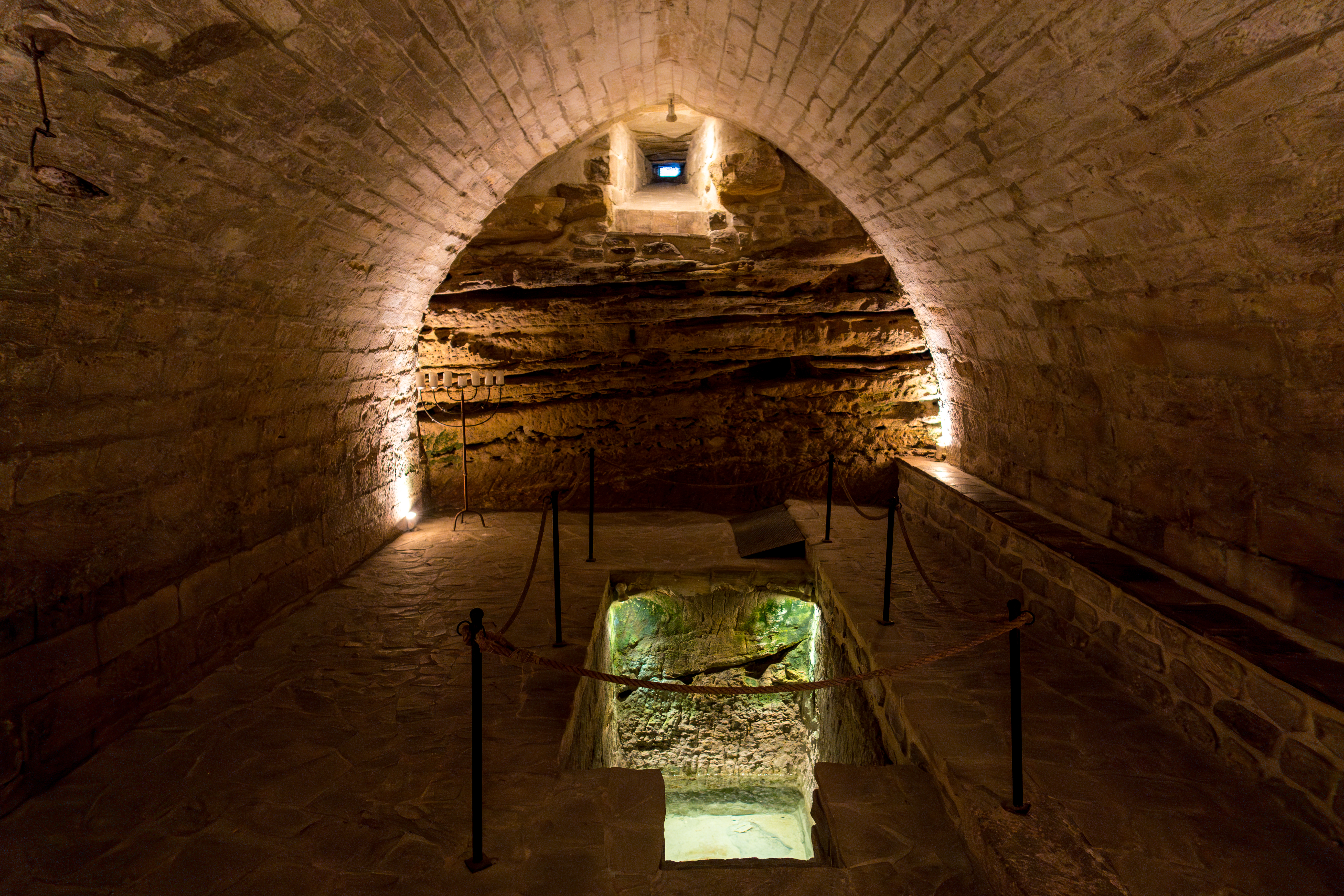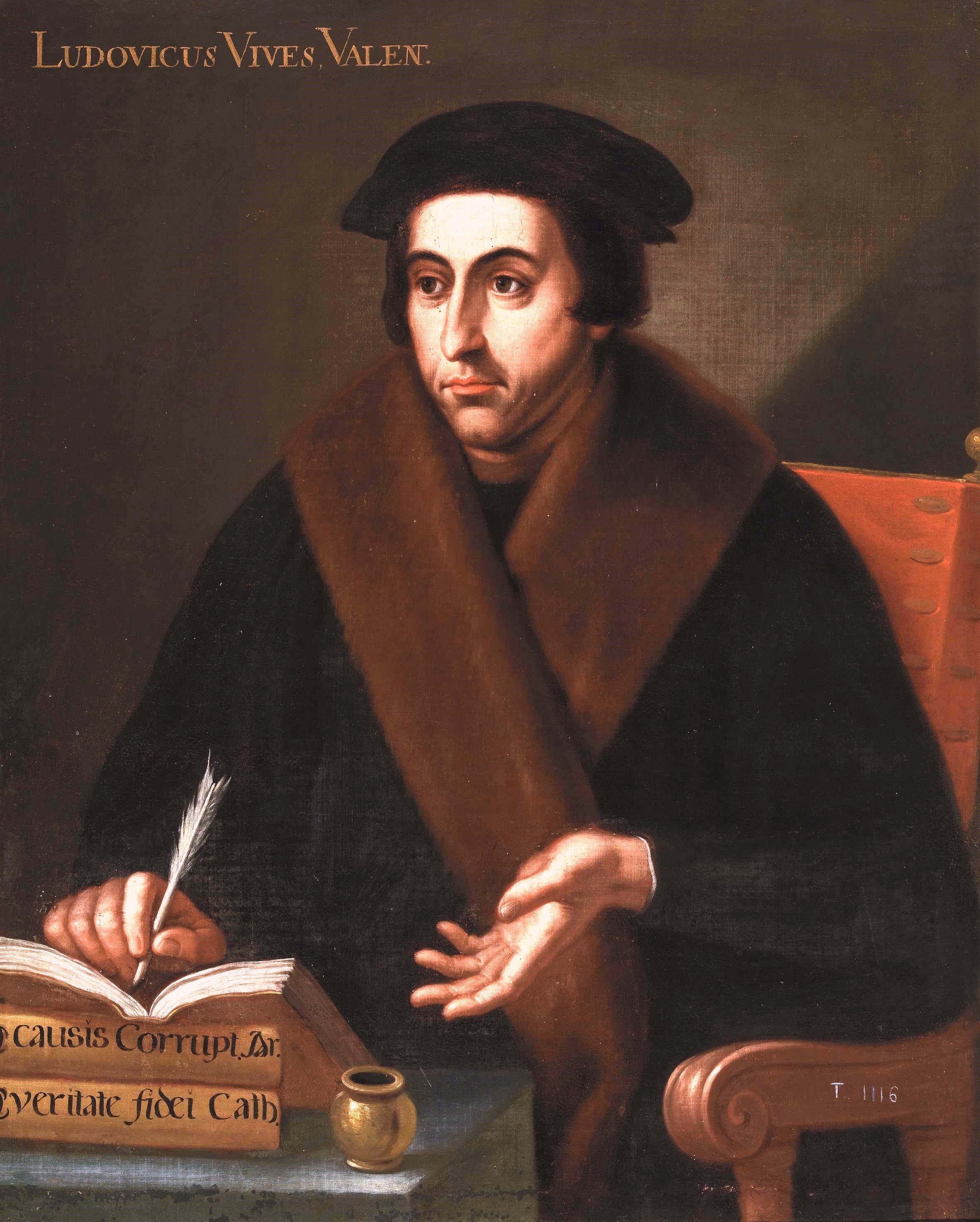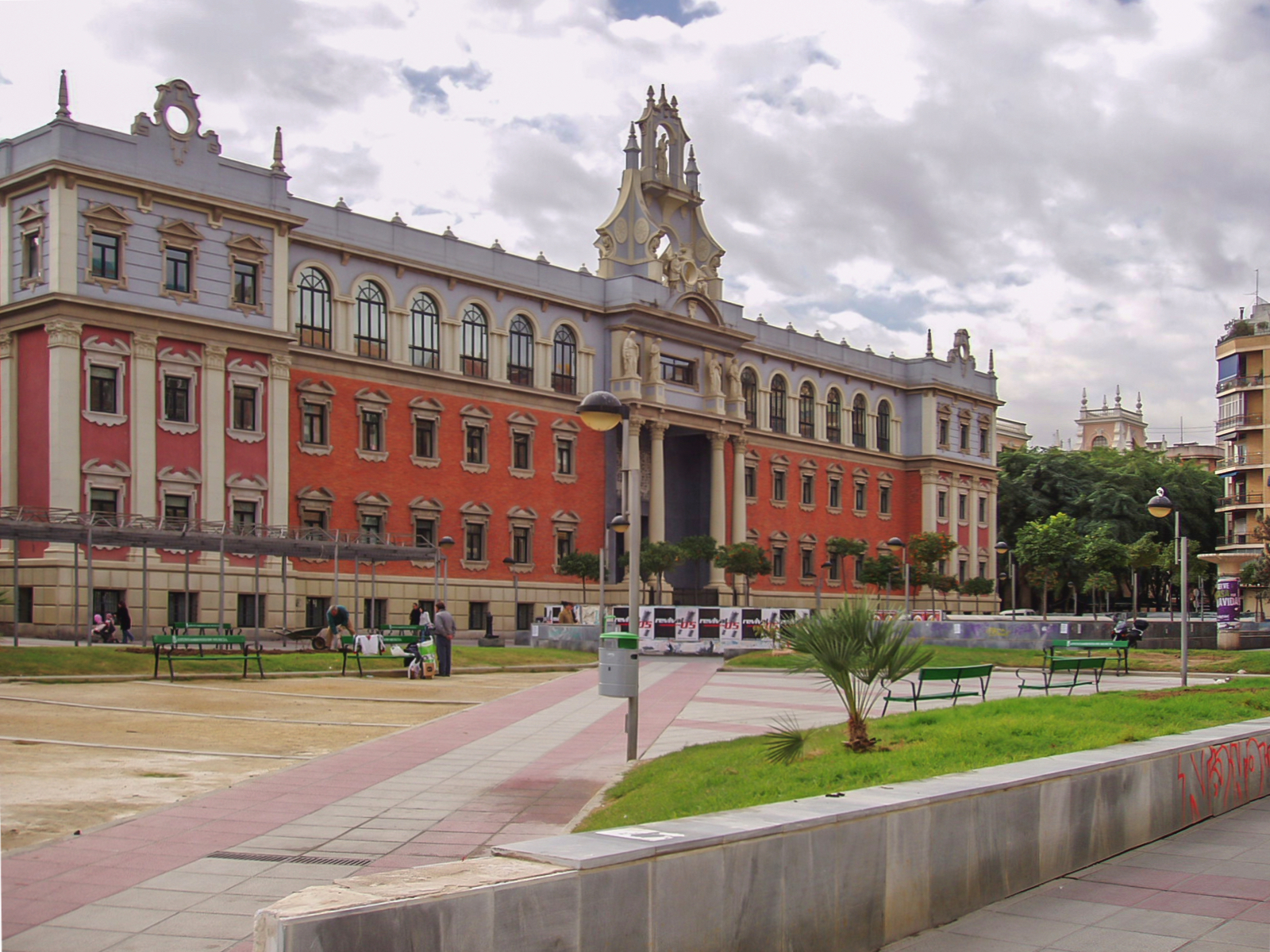|
José Luis Villacañas
José Luis Villacañas Berlanga (born in 1955) is a Spanish political philosopher and historian of political ideas. Biography Born in Úbeda on 10 June 1955, he studied in the ''Colegio de la Sagrada Familia'' in his native town. He graduated in Philosophy in the University of Valencia in 1977; he later obtained his PhD in Philosophy with ''Realismo empírico e idealismo trascendental en la filosofía teórica de Kant. Los niveles de uso y de justificación'' in the same university. He has been full professor in the University of Murcia (UM) and, since 2009, in the Complutense University of Madrid The Complutense University of Madrid (, UCM; ) is a public research university located in Madrid. Founded in Alcalá in 1293 (before relocating to Madrid in 1836), it is one of the oldest operating universities in the world, and one of Spain's ... (UCM). Works * * * * * * * * * * References {{DEFAULTSORT:Villacanas, Jose Luis Spanish political philosophers Liv ... [...More Info...] [...Related Items...] OR: [Wikipedia] [Google] [Baidu] |
Úbeda
Úbeda () is a municipalities in Spain, municipality of Spain located in the Province of Jaén (Spain), province of Jaén, Andalusia. The town lies on the southern ridge of the so-called Loma de Úbeda, a Table (landform), table sandwiched in between the Guadalquivir and the Guadalimar river beds. Both this town and the neighbouring Baeza, Spain, Baeza benefited from extensive patronage in the early 16th century resulting in the construction of a series of Renaissance style palaces and churches, which have been preserved ever since. In 2003, UNESCO declared the historic centres and landmarks of these two towns a World Heritage Site. As of 2017, the municipality has a registered population of 34,733, ranking it as the fourth most populated municipality in the province. History Prehistory Legend has it that Úbeda was established by Tubal, a descendant of Noah. The city's name is said to have originated from the mythical tower of King Ibiut. Archaeological evidence indicates the ... [...More Info...] [...Related Items...] OR: [Wikipedia] [Google] [Baidu] |
Consejo Superior De Investigaciones Científicas
The Spanish National Research Council (, CSIC) is the largest public institution dedicated to research in Spain and the third largest in Europe. Its main objective is to develop and promote research that will help bring about scientific and technological progress, and it is prepared to collaborate with Spanish and foreign entities in order to achieve this aim. CSIC plays an important role in scientific and technological policy, since it encompasses an area that takes in everything from basic research to the transfer of knowledge to the productive sector. Its research is driven by its centres and institutes, which are spread across all the autonomous regions. CSIC has 6% of all the staff dedicated to research and development in Spain, and they generate approximately 20% of all scientific production in the country. It also manages a range of important facilities; the most complete and extensive network of specialist libraries, and also has joint research units. Significant latest r ... [...More Info...] [...Related Items...] OR: [Wikipedia] [Google] [Baidu] |
Público (Spain)
''Público'' () is a Spanish online newspaper. It was published as a print daily newspaper between 2007 and 2012. The print version folded but the newspaper continues online. History and profile ''Público'' was established in September 2007. The founder is Jaume Roures, head of Mediapro. One of only two national left-wing papers (the other being eldiario.es, ''elDiario.es''), the paper had a harder-left editorial line than ''El País''. ''Público'' also aimed at a younger readership. The paper was two-thirds the length of its competitors and its price, initially only 50 cents, was less than half. The paper's original press run was 250,000 daily. After several years of financial losses, and facing a Euro, €9 million deficit, ''Público'' folded its print edition in February 2012. In its last year, the paper was the ninth-largest general-interest newspaper in Spain and the fifth-largest of those headquartered in Madrid. [...More Info...] [...Related Items...] OR: [Wikipedia] [Google] [Baidu] |
University Of Valencia
The University of Valencia ( ), shortened to UV, is a public research university in Valencia, Spain. It is one of the oldest universities in Spain, and the oldest in the Valencian Community. It is regarded as one of Spain's leading academic institutions. The university was founded in 1499, and currently has around 55,000 students. Most of the courses are taught in Spanish, however their plan is to increase the number of courses available in Valencian and English as well. It is located in the Mediterranean Spanish baseline, in the city of Valencia which is the capital and most populous city of the autonomous community of Valencia and the third largest city in Spain, with a population of 829,705 in 2014. One of its campuses is located in the metropolitan area of Valencia, in the municipalities of Burjassot and Paterna. The current chancellor is María Vicenta Mestre Escrivá. History At the request of James I the Conqueror, Pope Innocent IV in 1246 authorized (by a Bull) ... [...More Info...] [...Related Items...] OR: [Wikipedia] [Google] [Baidu] |
University Of Murcia
The University of Murcia () is the primary institute of higher education in Murcia, Spain. With a student population of approximately 38,000, it is the largest university in the Region of Murcia. Founded in 1272 AD, the University of Murcia is the third oldest university in Spain, following only the University of Salamanca (1218 AD) and the University of Valladolid (1241 AD), and the thirteenth oldest in the world. The University of Murcia was established by the King Alfonso X of Castile under the Crown of Castile. The majority of the university's facilities and buildings are spread over two campuses: the older is La Merced, situated in the town center, and the larger is Espinardo, 5km to the north of Murcia. History The first university in Murcia was founded as the Universitas Studiorum Murciana by Alfonso X of Castile around 1272. The current modern University of Murcia was founded in 1915, making it the tenth oldest university in Spain among the modern universiti ... [...More Info...] [...Related Items...] OR: [Wikipedia] [Google] [Baidu] |
Complutense University Of Madrid
The Complutense University of Madrid (, UCM; ) is a public research university located in Madrid. Founded in Alcalá in 1293 (before relocating to Madrid in 1836), it is one of the oldest operating universities in the world, and one of Spain's most prestigious institutions of higher learning. It is located on a sprawling campus that occupies the entirety of the Ciudad Universitaria district of Madrid, with annexes in the district of Somosaguas in the neighboring city of Pozuelo de Alarcón. It is named after the ancient Roman settlement of Complutum, now an archeological site in Alcalá de Henares, just east of Madrid. It enrolls over 86,000 students, making it the eighth largest non-distance European university by enrollment. By Royal Decree of 1857, the Central University was the first and only institution in Spain authorized to grant doctorate degrees throughout the Spanish Empire. In 1909, the Central University became one of the first universities in the world to grant ... [...More Info...] [...Related Items...] OR: [Wikipedia] [Google] [Baidu] |
University Of Seville
The University of Seville (''Universidad de Sevilla'') is a university in Seville, Andalusia, Spain. Founded under the name of ''Colegio Santa María de Jesús'' in 1505, in 2022 it has a student body of 57,214,U-Ranking Universidades españolasUniversidad de Sevilla./ref> and is ranked 6th among Spanish universities. History Colegio de Santa María de Jesús The University of Seville originally dates to the 15th century. Created by Archdeacon Maese Rodrigo Fernández de Santaella, it was originally called ''Colegio de Santa María de Jesús.'' In the 16th century (1505), a Papal bull, Bull of Pope Pope Julius II, Julius II granted the college the faculty to teach degrees in Theology, Philosophy, Law, Medicine and Arts''.'' In 1551, the City Council allowed it, by means of a Royal Provision, to officially become a university, enjoying all the privileges of the other Spanish universities. Its antecedents date back to the middle of the 13th century, the Dominican Order, Domin ... [...More Info...] [...Related Items...] OR: [Wikipedia] [Google] [Baidu] |
Universidad Nacional De Educación A Distancia
The National Distance Education University (, UNED) is a distance learning and research university founded in 1972 and is the only university run by the government of Spain. The headquarters is located in Madrid, with campuses in all Spanish autonomous communities. There are 14 study centers and 3 exam points in 13 countries in Europe, the Americas and Africa. The University awards undergraduate and postgraduate degrees, as well as non-degree qualifications such as diplomas and certificates, or continuing education units. UNED is focused on distance learning combined with traditional classroom instruction (called hybrid or blended) and supports over 150,000 students. Origins and methodology Founded in 1972 with the stated purpose of providing education opportunities via a distance education system - in which students are taught while not being physically present - UNED awards the same qualifications as other Spanish universities and has the same entry requirements. ... [...More Info...] [...Related Items...] OR: [Wikipedia] [Google] [Baidu] |
El País
(; ) is a Spanish-language daily newspaper in Spain. is based in the capital city of Madrid and it is owned by the Spanish media conglomerate PRISA. It is the second-most circulated daily newspaper in Spain . is the most read newspaper in Spanish online and one of the Madrid dailies considered to be a national newspaper of record for Spain (along with '' El Mundo'' and '' ABC)''. In 2018, its number of daily sales were 138,000. Its headquarters and central editorial staff are located in Madrid, although there are regional offices in the principal Spanish cities (Barcelona, Seville, Valencia, Bilbao, and Santiago de Compostela) where regional editions were produced until 2015. also produces a world edition in Madrid that is available online in English and in Spanish (Latin America). History was founded in May 1976 by a team at PRISA which included Jesus de Polanco, José Ortega Spottorno and Carlos Mendo. The paper was designed by Reinhard Gade and Julio Alonso. It wa ... [...More Info...] [...Related Items...] OR: [Wikipedia] [Google] [Baidu] |
Spanish Political Philosophers
Spanish might refer to: * Items from or related to Spain: **Spaniards are a nation and ethnic group indigenous to Spain **Spanish language, spoken in Spain and many countries in the Americas **Spanish cuisine **Spanish history **Spanish culture **Languages of Spain, the various languages in Spain Other places * Spanish, Ontario, Canada * Spanish River (other), the name of several rivers * Spanish Town, Jamaica Other uses * John J. Spanish (1922–2019), American politician * "Spanish" (song), a single by Craig David, 2003 See also * * * Español (other) * Spain (other) * España (other) * Espanola (other) * Hispania, the Roman and Greek name for the Iberian Peninsula * Hispanic, the people, nations, and cultures that have a historical link to Spain * Hispanic (other) * Hispanism * Spain (other) * National and regional identity in Spain * Culture of Spain The culture of Spain is influenced by its Western w ... [...More Info...] [...Related Items...] OR: [Wikipedia] [Google] [Baidu] |
Living People
Purpose: Because living persons may suffer personal harm from inappropriate information, we should watch their articles carefully. By adding an article to this category, it marks them with a notice about sources whenever someone tries to edit them, to remind them of WP:BLP (biographies of living persons) policy that these articles must maintain a neutral point of view, maintain factual accuracy, and be properly sourced. Recent changes to these articles are listed on Special:RecentChangesLinked/Living people. Organization: This category should not be sub-categorized. Entries are generally sorted by family name In many societies, a surname, family name, or last name is the mostly hereditary portion of one's personal name that indicates one's family. It is typically combined with a given name to form the full name of a person, although several give .... Maintenance: Individuals of advanced age (over 90), for whom there has been no new documentation in the last ten ... [...More Info...] [...Related Items...] OR: [Wikipedia] [Google] [Baidu] |
1955 Births
Events January * January 3 – José Ramón Guizado becomes president of Panama. * January 17 – , the first Nuclear marine propulsion, nuclear-powered submarine, puts to sea for the first time, from Groton, Connecticut. * January 18–January 20, 20 – Battle of Yijiangshan Islands: The Chinese Communist People's Liberation Army seizes the islands from the Republic of China (Taiwan). * January 22 – In the United States, The Pentagon announces a plan to develop intercontinental ballistic missiles (ICBMs), armed with nuclear weapons. * January 23 – The Sutton Coldfield rail crash kills 17, near Birmingham, England. * January 25 – The Presidium of the Supreme Soviet of the Soviet Union announces the end of the war between the USSR and Germany, which began during World War II in 1941. * January 28 – The United States Congress authorizes President Dwight D. Eisenhower to use force to protect Taiwan from the People's Republic of China. February * February 10 – T ... [...More Info...] [...Related Items...] OR: [Wikipedia] [Google] [Baidu] |






